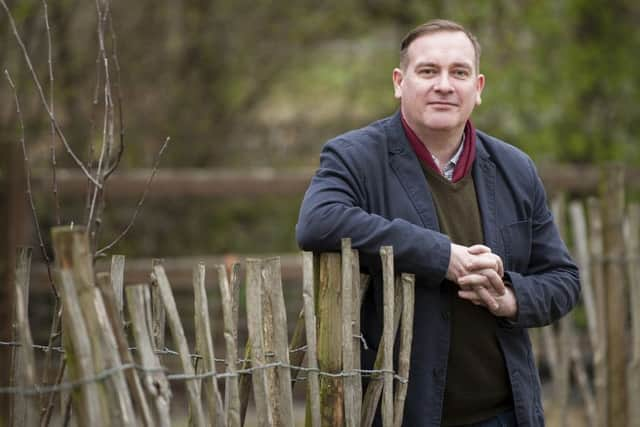How The Archers sounded a warning of middle-class domestic abuse in rural Yorkshire


Amidst the “everyday stories of country folk” in fictional Ambridge, the hardest-hitting storyline in The Archers has seen long-standing character Helen Archer psychologically bullied and abused by her manipulative husband Robert Titchener.
The BBC Radio 4 storyline about the arrival of charming farmer Rob, who whisked Helen off her feet before embarking on a subtle but deeply horrifying campaign of emotional abuse, has gripped and appalled the country.
Advertisement
Hide AdAdvertisement
Hide AdAnd according to charity bosses, the so-called “Archers Effect” has helped to raise awareness that domestic abuse affects all sorts of people, including middle-class independent women in sleepy villages such as Ambridge.


A total of 6,774 calls were made to the national domestic abuse helpline in February this year compared with 5,783 in February 2015 - an increase of 17 per cent.
Polly Neate, chief executive of the charity Women’s Aid, said: “It is really powerful - I think it will make people stop and think and help women understand what is really happening to them.
“I think it has made quite a big difference to people’s perception of domestic abuse itself.”
Advertisement
Hide AdAdvertisement
Hide AdSarah Hill, director of IDAS, which helps North Yorkshire victims of domestic abuse and sexual violence, said many of the people her charity supports “have experienced insidious forms of emotional and financial abuse”.


She said: “In these circumstances people often aren’t fully aware of what is happening and can find themselves isolated from friends and family and traumatised and depressed by their experiences.
“For people living in rural communities there is the added complication that accessing help can be difficult.
“In smaller communities where the local GP might be a friend of the family or the local policeman knows the perpetrator, it is hard to report what is happening. Lack of access to transport can also prohibit people from approaching support agencies for help.
Advertisement
Hide AdAdvertisement
Hide Ad“We would always ask people if they are concerned about their relationship to email us for advice or call our free, confidential helpline. The same is true for friends and family who might be concerned about someone they know.
“Our statistics suggest that in up to 50 per cent of cases, a friend or family member was aware of, or suspected that abuse was taking place.
“From our experience, domestic abuse happens anywhere to anyone irrespective of where you live or your social background. In North Yorkshire alone there are nearly 10,000 reports made to the police each year and this is the tip of the iceberg.”
IDAS has been running its own awareness campaign since November and has seen a 30 per cent increase in referrals from the rural areas of Harrogate, Hambleton and Richmondshire.
Advertisement
Hide AdAdvertisement
Hide AdThe Archers storyline has provoked a massive outpouring on social media and prompted one fan to set up a Just Giving page which has raised more than £65,000 for the domestic violence charity Refuge.
Over many months, it has seen Rob gradually, but determinedly, isolate Helen from her friends and family, manoeuvre her out of her job and play on her insecurities so she has become a shadow of her former self.
The storyline coincides with the introduction of the new coercive controlling behaviour offence, which criminalises extreme psychological and emotional abuse which falls short of physical violence.
Archers editor Sean O’Connor said that as early as 2014, he was amazed by the reaction from listeners to Rob’s “seemingly casual” comments about Helen “and how only The Archers audience could be so sensitive to nuance, the slightest change in timbre of Rob’s perfectly modulated Received Pronunciation”.
Advertisement
Hide AdAdvertisement
Hide AdHe added: “But this was, as has now become abundantly clear, only the start of the story: the tip of the iceberg.
“For some months now, listeners have heard Helen and Rob’s relationship develop into an abusive one.
“Through our research we learned that it can take a long time for domestic abuse to come to light - even to victims of domestic abuse themselves - and we have reflected this in the way we are telling Helen’s story.
“One of the great benefits of The Archers format is that we have been able to chart this story in real time, week after painful week, as the reality of Rob’s abuse of Helen has become clear to the audience.”
The Freephone 24-Hour National Domestic Violence Helpline, run in partnership between Women’s Aid and Refuge, can be reached on 0808 2000 247.